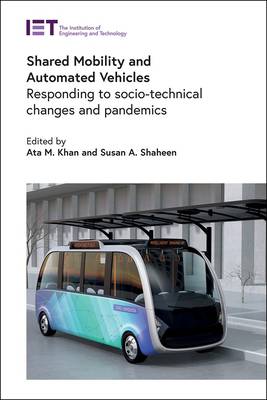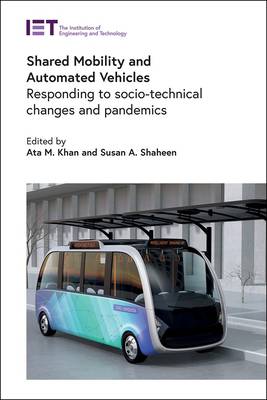
- Afhalen na 1 uur in een winkel met voorraad
- Gratis thuislevering in België vanaf € 30
- Ruim aanbod met 7 miljoen producten
- Afhalen na 1 uur in een winkel met voorraad
- Gratis thuislevering in België vanaf € 30
- Ruim aanbod met 7 miljoen producten
Shared Mobility and Automated Vehicles
Responding to Socio-Technical Changes and Pandemics
Omschrijving
Shared vehicles are a key part of any future intelligent and clean transport system, as they can allow for the sharing and potentially more efficient use of transport resources and fuel. Shared mobility has been gaining attention in the private and public sectors as a possible strategy for taming auto ownership, vehicle miles/kilometers travelled, and emissions.
Serving as a source of information on how best to shape shared vehicle systems of the future, this book contributes knowledge on key facets of shared mobility. It includes shared vehicle systems as well as shared automated vehicle systems. Themes covered in the book include policy and regulatory frameworks, planning, design, technology, demand and supply models, algorithms, operations, management, economic factors, business models, social equity, environmental impacts, and pandemic effects.
Shared Mobility and Automated Vehicles: Responding to socio-technical changes and pandemics comprehensively and systematically covers this important topic for an audience of researchers in academia and research institutes involved with intelligent transport systems and urban mobility. The book is also a valuable resource for public policy analysts, planners, system designers, system level technology developers, consultants, and students.
Specificaties
Betrokkenen
- Uitgeverij:
Inhoud
- Aantal bladzijden:
- 520
- Taal:
- Engels
- Reeks:
Eigenschappen
- Productcode (EAN):
- 9781785618628
- Verschijningsdatum:
- 15/02/2022
- Uitvoering:
- Hardcover
- Formaat:
- Genaaid
- Afmetingen:
- 160 mm x 241 mm
- Gewicht:
- 997 g

Alleen bij Standaard Boekhandel
Beoordelingen
We publiceren alleen reviews die voldoen aan de voorwaarden voor reviews. Bekijk onze voorwaarden voor reviews.








